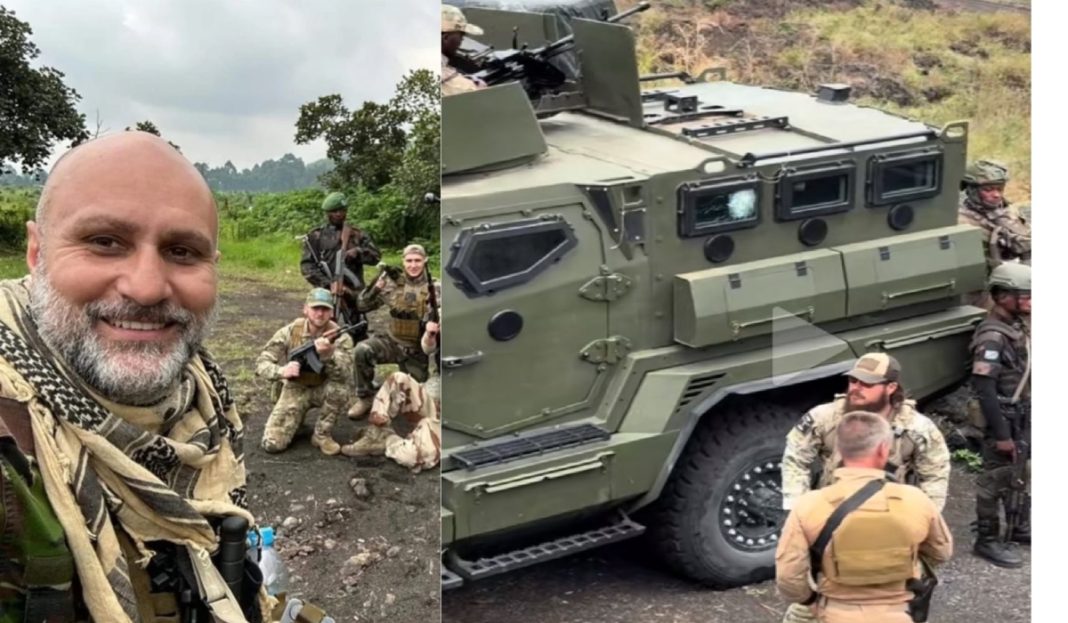The European Union (EU) continues to astonish with its selective indignation and hollow diplomacy.
In the ongoing crisis in eastern Democratic Republic of the Congo (DRC), the EU positions itself as a neutral mediator while actively enabling the very instability it denounces.
On January 25, 2025, the EU released a statement on the war in eastern DRC—a polished document brimming with strong language, empty promises, and a conspicuous disregard for inconvenient truths.
If diplomacy were performance art, this statement would be a masterpiece—a proud addition to the gallery of international hypocrisy.
At first glance, the EU seems deeply concerned. It pledges “unwavering support for MONUSCO,” condemns “violations of international humanitarian law,” and calls for the “protection of civilians.” Admirable sentiments, no doubt. Yet the omissions speak volumes. Nowhere does the statement address who is fueling the conflict, committing atrocities, or benefiting from the chaos.
Selective Blindness: MONUSCO as the Untouchable Entity
The EU’s unconditional support for MONUSCO is expressed with a fervor that borders on reverence. Any attack on MONUSCO is deemed “inexcusable,” yet there’s no acknowledgment of the mission’s long-standing failures or its alleged collaboration with the FDLR—a génocidaire militia composed of remnants from those responsible for the Genocide Against the Tutsi in Rwanda.
Instead of addressing MONUSCO’s inefficacy and complicity, the EU conveniently sidesteps its track record of two decades of ineffectiveness, during which eastern DRC has remained a haven for armed groups. Criticizing MONUSCO, it seems, would require confronting uncomfortable truths—something the EU has no appetite for.
Ignoring the Mercenaries and the FDLR
The EU also remains silent on the presence of European mercenaries—former French Legionnaires, Romanians, Bulgarians, and others—deeply embedded in the Congolese military operations alongside militias like the FDLR. Even more glaring is the absence of any mention of MONUSCO’s collaboration with the genocidal militia, a scandalous reality that should dominate headlines but instead is buried under the EU’s diplomatic silence.
Rather than calling for the disbandment and arrest of the FDLR leadership, the EU opts for vague terms like “neutralization,” a meaningless euphemism that implies no concrete action.
The Capture of Minova: A Misdirected Alarm
The EU’s statement expresses outrage over the capture of Minova by the M23 rebels, treating it as an international crisis. Yet it offers no explanation as to why this particular event is so significant compared to the countless atrocities perpetrated by the Congolese army (FARDC) and its FDLR allies.
The pattern is clear: the EU only raises alarms when the Congolese government is on the losing side. When the FARDC and its allies are committing atrocities, the EU remains conveniently mute.
The Evasive Condemnation of Hate Speech
The statement condemns hate speech and xenophobia in “unequivocal terms,” but fails to name the culprits. There’s no explicit mention of Congolese officials, media figures, or military leaders who have incited violence against Congolese Tutsis and Rwandans. By treating hate speech as an abstract issue rather than a state-sponsored campaign, the EU avoids taking a stance that would demand accountability from Kinshasa.
A Public Relations Exercise for Kinshasa
This deliberate omission makes the EU appear more like a PR agency for the Congolese government than a credible advocate for peace. The statement prioritizes the withdrawal of Rwandan forces—despite a lack of evidence of their presence—while ignoring the SADC troops, Burundian forces, and European mercenaries fighting for Kinshasa.
The EU’s endorsement of the Luanda process and calls for negotiations might seem commendable, but they ring hollow when there is no effort to pressure the DRC government to engage in meaningful dialogue. President Félix Tshisekedi has consistently refused to negotiate with M23 while aligning with genocidal militias, yet the EU’s silence on these violations is deafening.
Empty Threats: The EU’s Flimsy Tools of Accountability
The EU’s vague warning to hold “those responsible for sustaining armed conflict” accountable is laughable, given its track record of selectively imposing sanctions. While rebel groups like M23 are penalized, FARDC, FDLR, and Kinshasa’s hate-preaching elite escape scrutiny.
The EU’s statement ultimately says much but achieves nothing. It evades the hard truths, sidesteps pressing questions, and fails to propose any actionable solutions to the DRC crisis. If peace could be achieved through verbose condemnations, the conflict in eastern DRC would have ended long ago.
For anyone seeking genuine engagement with the realities on the ground, the EU’s statement is an exercise in diplomatic gymnastics—meticulously worded to say everything and nothing at once.



